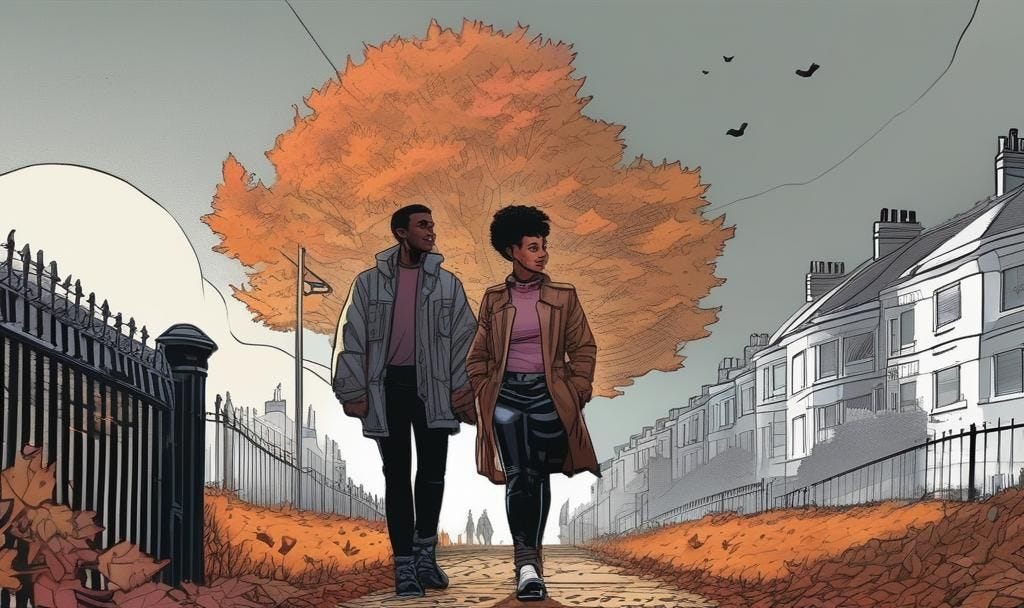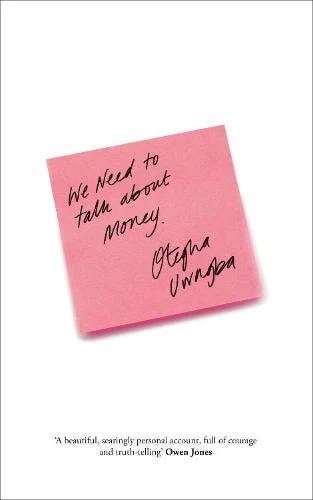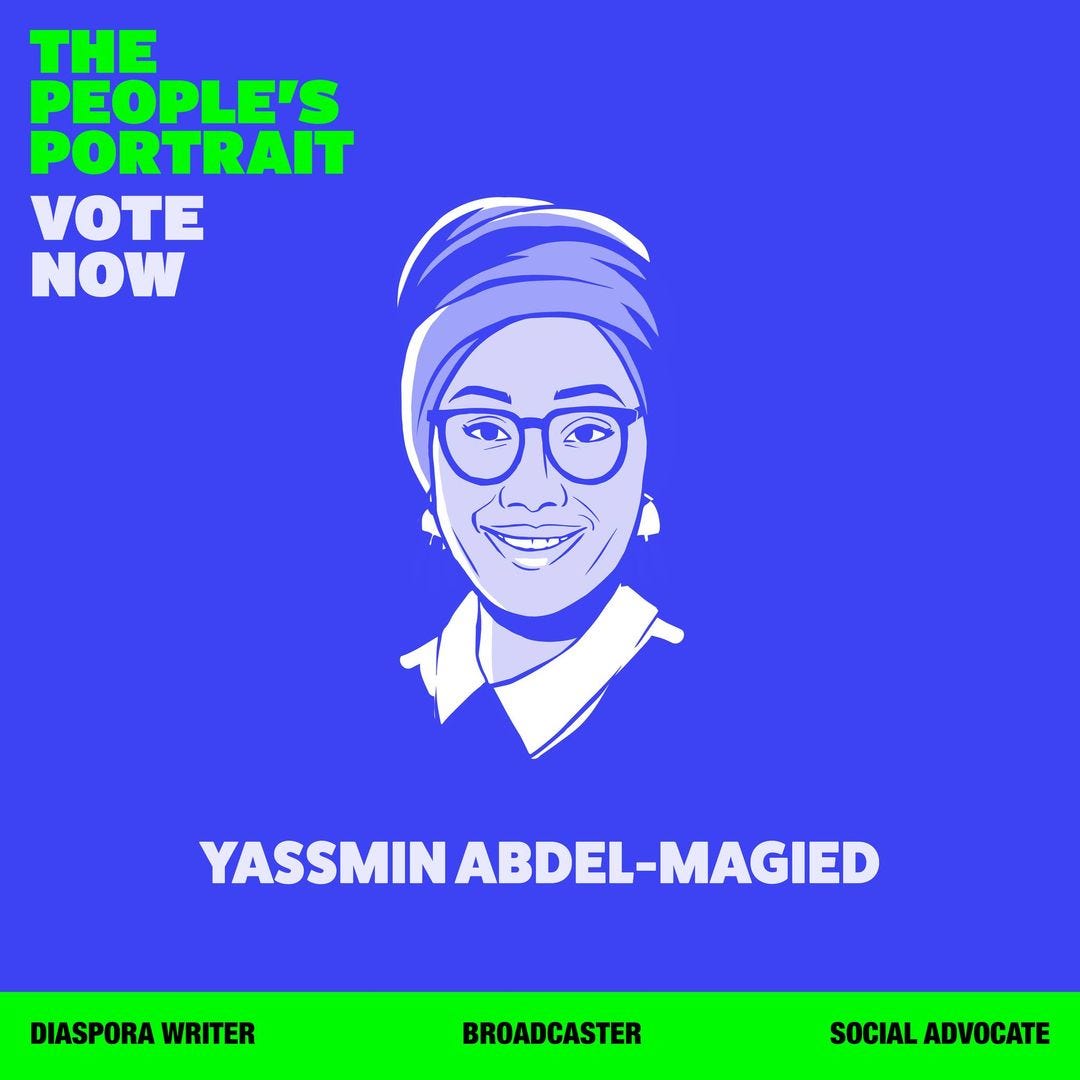
This week, I welcomed a dear friend back to the city.
Technically, we’re ‘pandemic buddies’. We knew each other loosely before the lockdowns, but the friendship bloomed during those dark, strange months at the outset of the decade. Ours is a platonic intimacy forged over hours of aimless walks through our neighbourhood, swapping the minutia of our monotonous day to day, confidences bouncing with loud laughs, silliness, and set with understanding, softness and grace. Our friendship has been almost five years now1, but it might as well be a lifetime.
My friend moved out of the city after the pandemic, and although I left first (going to Paris, then coming back), my London is poorer without them. So, their return is always an event, a moment to celebrate, a time to swipe aside all other plans and pay attention, spend quality time. We walk, and we talk, we sometimes make plans but often cast them aside, and so much of what we’re doing is thinking aloud, together. There’s often a theme that emerges from each visit, concept that we’ve chewed over, debated, tested, poked at. I’m always left pondering, asking myself questions as they leave and our friendship returns to its digital form.
One of the major topics of conversation this visit has been money. Ah, yes. That ol’ chestnut. Money, money, money!

Talking about Money
For a concept that shapes so much of our lives, we’re awful at talking openly about money. I shouldn’t say ‘we’: let me be more specific. I find that in England, discussions around money and wealth are some of the most awkward conversations one can have, and even those who claim themselves to be progressive, open-minded, revolutionary creatures curl up with shame and embarrassment at the prospect of being open about money.
One of my favourite things to do when I meet a new group of people - particularly white, posh-looking British folks - is ask them what class they are. It’s something I began to do unironically when I first moved here, because I didn’t understand the class system and I thought the quickest way to get my head around it would be to ask. Wrong! There’s nothing that makes a man’s face curdle faster than asking him his class position.
I quickly realised almost everybody lied. They might not think they were lying, but certainly the answer they gave was far from honest, often one that obscured both their material and cultural position rather than enlightened it. Maybe it is gauche of me to think we should be straight up and down about these things - I’ve certainly been told so to my face - but in a society where so much of one’s opportunities are wrapped up in one’s class position, it feels only fair and just that we should talk about it. Because secrecy, privacy, hiding it away - that’s how wealth and power is maintained, is it not?
The book I’m currently reading makes this point crystal clear. ‘Who Owns England’ is both a book (by Guy Shrubsole) and a website attempting to answer ‘one of the most closely-guarded secrets in the thousand-year-old history of this country.’ A review of the book (here) tells the story of when the late Duke of Westminster, Gerald Grosvenor (owner of much of London’s Belgravia and central Liverpool) was asked how young entrepreneurs might succeed in Britain, he “observed, drily, that they should “make sure they have an ancestor who was a very close friend of William the Conqueror”.”
The ‘Land of the Free’, England is not.
Our ‘Money Stories’
It’s not just the English who struggle. I’ve come to appreciate our relationship to money is often far knottier than we realise and, like so many important and hidden currents, has so much to do with how our parents - and perhaps even grandparents - managed and talked about money.
It might be the case that someone has many thousands of pounds in savings, but still feels precarious. It might be that someone has access to a thick and forgiving safety net, but feels like they cannot access it because it would place them in a psychologically unsafe position. There are those who grew up working class in the financial sense who have long transcended that material position, but are culturally wedded to the identity. Those who grew up with scarcity who do not know how to shed the habits, the fear. It is all understandable, human. I have empathy for the gap between the material reality and the felt one.
However, I do wonder about the distinction between those who feel like they cannot access money or wealth that is there, versus those who simply would not be able to. Surely we must be able to differentiate the two? Why do we find it so hard to be honest with ourselves about this?
Another book that began to engage with these issues in the interpersonal realm is Otegha Uwagba’s ‘We Need to Talk About Money’. She talks about the confusion she felt after graduating from Oxford and finding so many of her peers, who she had understood were similarly skint, suddenly began to purchase homes. Money appeared out of nowhere, inherited wealth that had been kept out of sight and out of conversation, until its moment arrived. But there was never a conversation about it. It just…happened. Confusing, no?
Different Cultural Approaches
The question I keep asking as I mull over this topic, as I ask provoke people into the conversation and as I compare myself and my cultural upbringing to the world I now find myself in, is how much of this is distinctly English, and how much is ‘human’. Because there’s part of me that genuinely believes this wouldn’t happen in the Sudanese context!
In the environment I grew up in, wealth was to be shared, not to be hidden away. A spare room was to be slept in, a spare house was to be filled. Arguably, these are more Islamic principles than Sudanese ones, but either way, giving - being generous in money and spirit - was a core part of one’s practice, of what it meant to be a ‘good person’. We were taught to be generous even with your manner: if you had nothing to give, at least you could give a smile, for that cost nothing.
I appreciate this approach. Being generous is something I admire in others and strive to practice myself. After all, I believe all my wealth, all the goodness I have the fortune to enjoy, comes not from me but from Allah! So, why not share it? Allah is limitless, and thus the good fortune, as from a higher power, is also without bounds.
But how to hold onto the openness, the generosity, the honesty about what one has, when those around you are taught, encouraged even, to do the opposite?
Is this something that can change?
What do you think? Do you think this is culturally coded, or something more primal, more universal, more human? What are the money stories you grew up with?
Let me know in the comments, can’t wait to hear your thoughts!
That’s all for this week, folks!
Recommendations will now be dropping in the mid-week email, free until the end of the year :) This newsletter will always be free, because I do want my words and thinking to reach you all, and because I love the conversations that arise! But as many of you long time subscribers now, I like to experiment with different payments structures to find ways of making this exercise sustainable. So, if you want to make sure you get all the drops, upgrade below! If not, all good. If you can’t afford to right now and you’d like a comp, reply to this email :)
See you on Wednesday, inshallah!
Yassmin
PS - To celebrate the anniversary of their first commission, the National Portrait Gallery is conducting a poll to determine who should be the subject of their next commissioned portrait. I’m in the running, so if you feel so inclined, vote for me! Appreciate you all :)
I can’t believe it’s been FIVE YEARS since the first lockdowns. Honestly.







This is such an interesting topic and one which I have reflected on my whole life in Australia. I’m also from a Muslim culture, and my father basically gave away most of his money to the extended family because of what I now understand to be survivor guilt. We grew up with a VERY basic upbringing, which he thought was adequate (and probably was) but made me believe we were poor. When I recently worked out the dollar equivalent of his salary now, I realised he had earned a very high amount- as a geologist during a mining boom…duh!!! I was completely shocked. The positive side of this is that it gave me a strong sense of class consciousness and a sensitivity to the nuance of privilege. Wealthy people still make me uncomfortable. The downside is that it made me resentful of him and gave me a lifelong anxiety about money. Not a great gift to your kids. I’m now in the position of earning a pretty good income (through a mixture of university degrees, hard work and fear) and my teenage son (who has inherited my class consciousness) often asks if we’re rich now. I say that no, we’re comfortable. For the first time in my life at 54 I feel somewhat free of a burden (although mindful that things can come crashing down at any time because I was born in the global south 😂) - of both the fear of not having money, and the need to pass as someone who has. I feel free to say what I think and dress how I want to dress- to signal that I’m not bourgeois! I tell my son I’m like the aunt who has won lotto- and happy to share the joy around. But I’m always mindful of making sure my son feels secure before everything else because that freedom from fear is a gift that everyone deserves.
Apologies for the spelling errors. I write like I talk - fast.